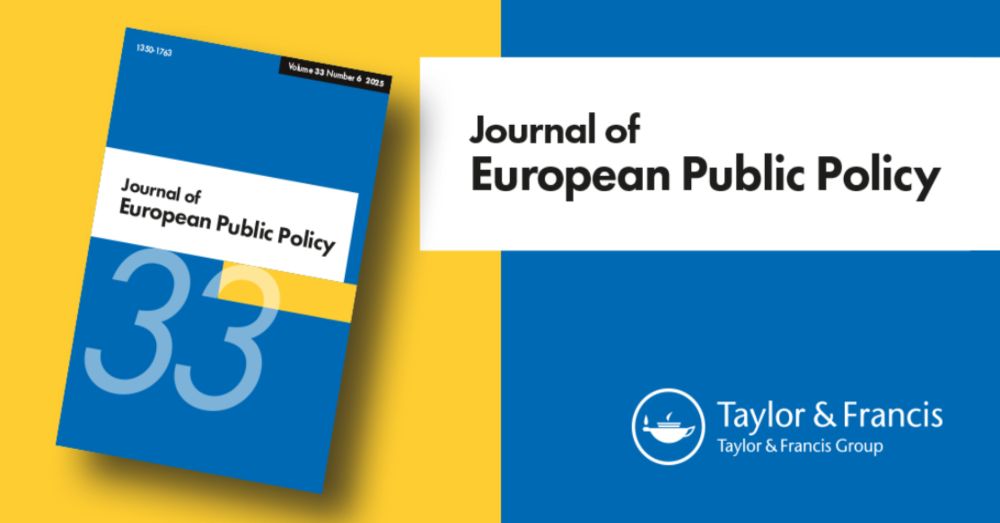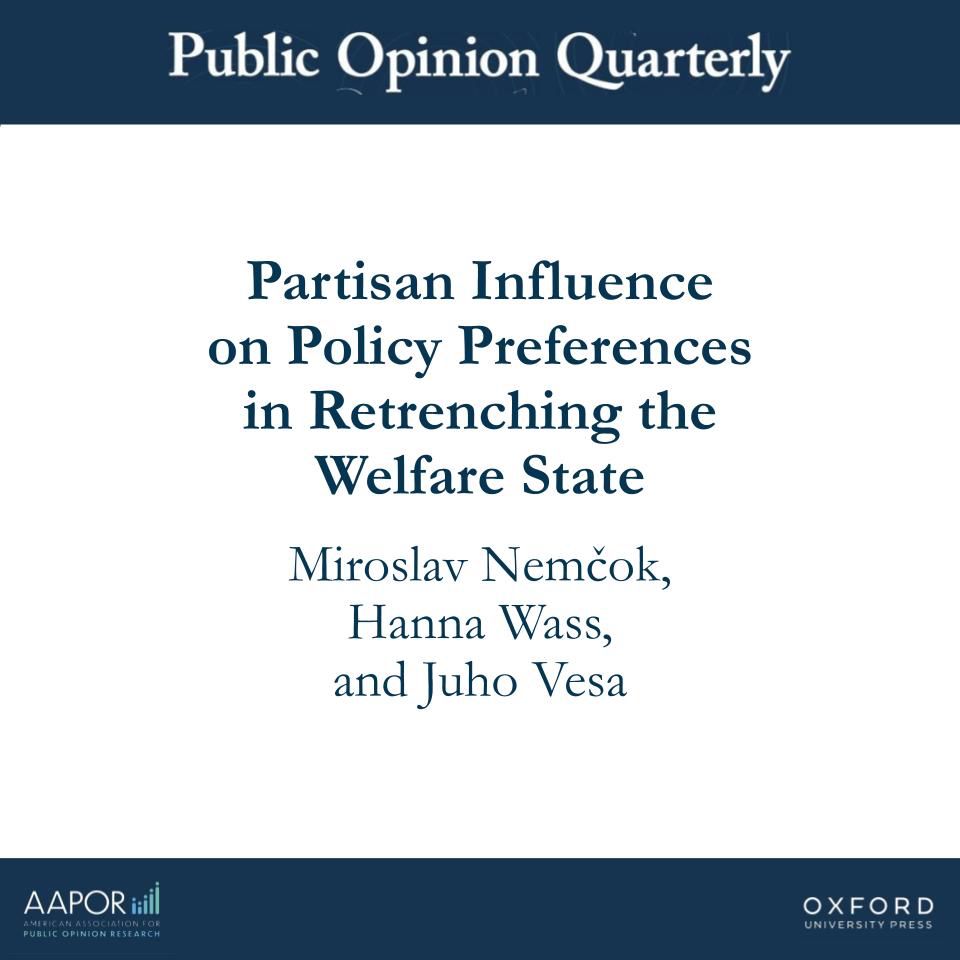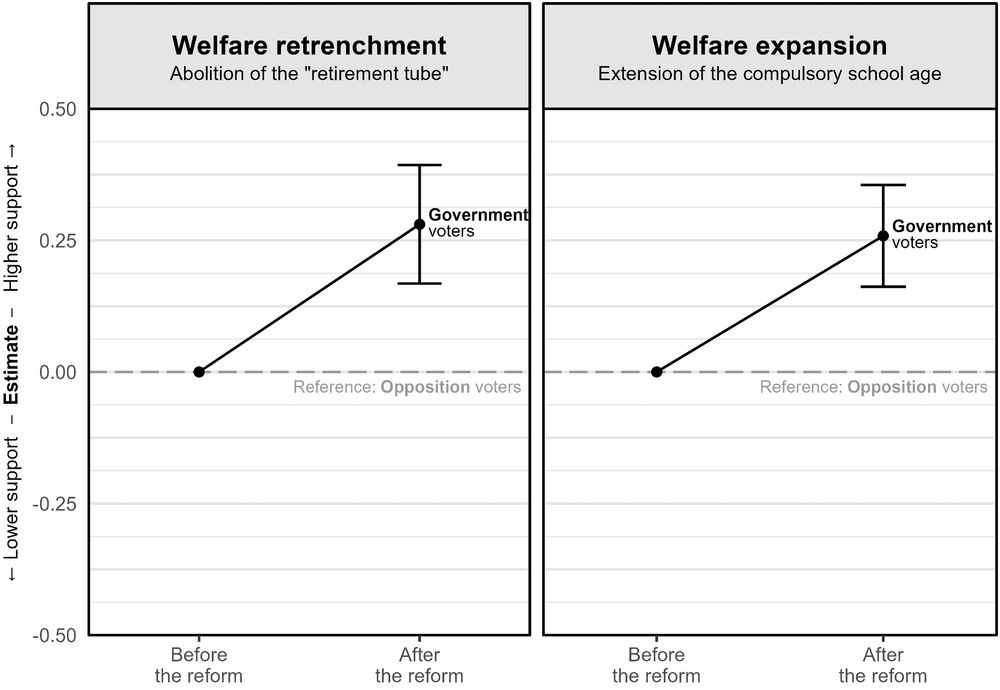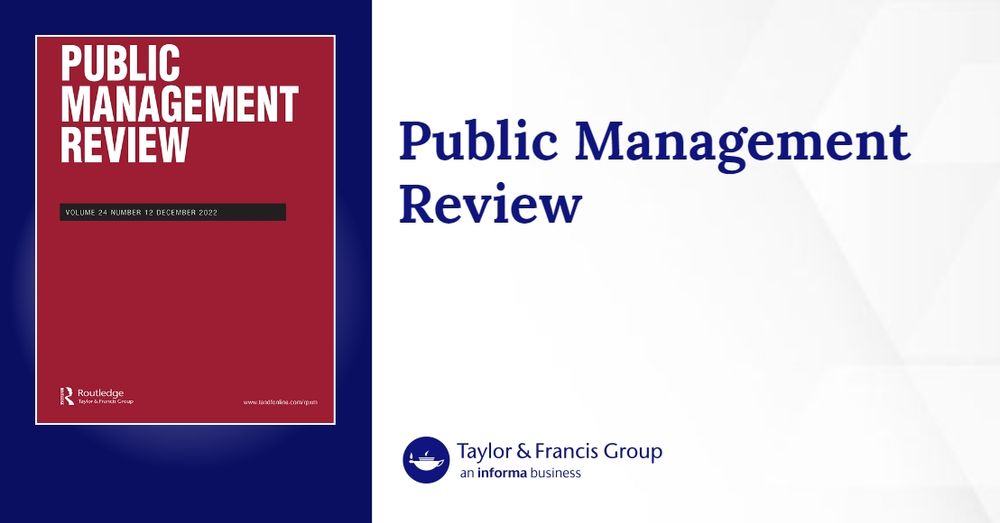Reposted by: Miroslav Nemčok
New paper in @jcpaicpa.bsky.social introduces an analytical approach to systematically map what governments do on (climate) policy along two dimensions:
🎯 Targets – goals governments address
🛠️ Instruments – how they pursue them
🔗 doi.org/10.1080/1387...



Reposted by: Miroslav Nemčok
🗺️ The map and table show which OECD countries have used these schemes.
👉 Can you spot your country?
(from Steinebach, Hinterleitner & Fernández-i-Marín doi.org/10.1111/puar...)


Reposted by: Miroslav Nemčok, Giulia Sandri
👉 www.supa.uio.no/english/inde...
There you’ll find:
🌍 project background & goals
👩🔬 team members & institutional partners
📢 news, events & publications (with more coming soon!)
Check it out — and let us know what you think!
Reposted by: Miroslav Nemčok
In his talk, Steffen Hurka @steffenhurka.bsky.social (a close friend of SUPA) explains:
📏 how to measure legislative complexity
⚖️ why it varies across laws & policy areas
🏛️ how it shapes institutions & implementation
www.youtube.com/watch?v=gclb...

Reposted by: Miroslav Nemčok
Reposted by: Miroslav Nemčok
Have you ever wondered how quick that growth is? 🤔
Hinterleitner, Knill @cknill.bsky.social & Steinebach in @reggovjournal.bsky.social empirically demonstrate the swelling complexity of legislative rulebooks!
📚 Read: doi.org/10.1111/rego...

Reposted by: Miroslav Nemčok
Steinebach, Fernández-i-Marín, Hinterleitner & Knill examine #environmental policy in 21 democracies and find:
- 1/3 of measures could be streamlined
- Effectiveness preserved (sometimes improved!)
Not crude cost-cutting ➡️ Smarter rules > fewer rules.
🔗 doi.org/10.1080/1350...

Reposted by: Miroslav Nemčok
The #SUPA Project addresses rule growth - the rapid expansion of laws and regulations - and its implications for governance.
Through five research-focused Work Packages (WPs), we generate data, theory, and tools to help sustain an effective democracy.

Reposted by: Miroslav Nemčok, Dorte Sindbjerg Martinsen, Giulia Sandri

Reposted by: Miroslav Nemčok, Staffan Kumlin
👥 Miroslav Kreos-Nemcok @miroslavnemcok.bsky.social (ISV), Hanna Wass @hannawass.bsky.social & Juho Vesa
🔎 Partisan Influence on Policy Preferences in Retrenching the Welfare State
📖 Open access in Public Opinion Quarterly
doi.org/10.1093/poq/...

by Miroslav Nemčok — Reposted by: Staffan Kumlin
🔽👇⬇️
by Miroslav Nemčok — Reposted by: Miroslav Nemčok, Staffan Kumlin
🌍 Can modern states withstand the pressures of a post-growth world?
👉 buff.ly/BQCQ8Vj
Just thinking that acceptance rates may decline over time, as you might resist the temptation to keep reaching out to friends.
Reposted by: Miroslav Nemčok
In our new #OA article in @jeppjournal.bsky.social, Stefano Sacchi, Caroline de la Porte and I show that citizens prioritize the welfare state—though important divisions emerge
www.tandfonline.com/doi/full/10....

In this @denikn.cz interview [in Czech], I discuss findings from a study co-authored with @celytadeas.bsky.social (@au.dk), Peter Spáč, and Michal Tóth (@masarykuniversity.bsky.social).
denikn.cz/1783201/nesn...

by Miroslav Nemčok — Reposted by: Stuart J. Turnbull‐Dugarte
Read our new paper in @poqjournal.bsky.social ⬇️⬇️⬇️
by Miroslav Nemčok — Reposted by: Chris Hanretty, Dimiter Toshkov, Stuart J. Turnbull‐Dugarte
Miroslav Nemčok and coauthors show that voters shift their views to match their party, even when that means supporting painful welfare cuts.
Out now in POQ: doi.org/10.1093/poq/...
@miroslavnemcok.bsky.social @hannawass.bsky.social


Reposted by: Miroslav Nemčok

So: voters adapt instead of rebelling.

In 2020, a center-left government cut income-based unemployment benefits for older laid-off workers (a classic retrenchment), while expanding compulsory education (a progressive investment).

@hannawass.bsky.social, Juho Vesa & I investigate this puzzle in @poqjournal.bsky.social: doi.org/10.1093/poq/...

Enjoy Prague! I'll be sending greetings from holidays in Spain 😇
Reposted by: Miroslav Nemčok
www.aftenposten.no/meninger/kro...

www.aftenposten.no/meninger/kro...

by Staffan Kumlin — Reposted by: Miroslav Nemčok
doi.org/10.1080/1471...
